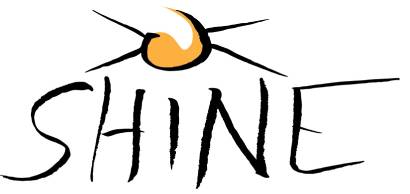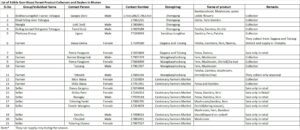Before the pandemic brought the Bhutanese tourism industry to a standstill, the kingdom had an ambitious goal of an annual growth rate of 5 percent in tourist arrivals by 2023 and a projected revenue of USD 105 million each year.
May 2020, when SHINE was launched, was only a few months after Bhutan closed its borders to protect the nation from the pandemic. As in most parts of the world, Bhutan saw the cancellation of all travel bookings, beginning as early as January 2020. In March, as the cases of COVID-19 surged around the globe, Bhutan saw over 2,400 visa cancellations (The Economic Contingency Plan, July 2020). Borders were closed, and travel by air and road stopped for international visitors. According to the Rapid Socio-economic Impact Assessment of COVID-19 on Tourism and Allied Sectors in Bhutan in May 2020, the impact of COVID-19 was “deep, widespread and cross-cutting.” All these challenges came at a crucial time for Bhutan – its transitioning to a middle-income-nation category by 2023.
The widespread negative effects of the COVID-19 pandemic on the world’s economies were no less damaging in Bhutan, and especially for the tourism industry. As a key source of revenue in the country, the decline in the tourism sector had a devastating impact for individuals and households. Tour operators had to retrench staff and close down offices, while other tourism-dependent businesses like gift- and souvenir shops, bus- and car rental services, drivers, and service personnel struggled to stay afloat. About 32 percent of employees lost their jobs or went on leave without pay; 74 percent of affected households reported a significant drop in income with substantial debts and diminishing ways of meeting monthly loan repayment schedules. For many families, tourism was their only source of income and they were the hardest hit. Of the ones who lost their jobs, most were tour guides.
His Majesty the King’s relief programs helped jobless guides make ends meet by providing monthly financial retainers to help them over the worst days of the pandemic. The royal initiatives of the king provided some with interim employment while yet others enrolled in “re-skilling” programs, rolled out by the Tourism Council of Bhutan (TCB). To help soften the hardest economic blows of the pandemic, the royal government bailed out hotels, tour companies, and hospitality and handicrafts businesses by rescheduling loan payments and deferring interest payments to the banks. The government also paid the salaries of workers previously employed by tourism companies and hotels for months, with no end in sight. A few others, however, returned to their ancestral roots in the villages, purportedly to take up farming.
SHINE is undergoing its own set of hardships. Frequent travel restrictions, followed by lockdowns in the major population centres, hampered the progress of the project’s field activities. As countermeasure, SHINE modified the time plan and modality of its activities. Remote work bypassed some of the need for international staff to travel to physical locations. Online calls and video conferences took the place of in-person events between local beneficiaries, partners and international experts. While such temporary expedients helped make tangible progress, there were limitations. It became difficult to mobilize local resources without the physical presence of international experts, and the situation on the ground was constantly changing. In these circumstances, hybrid events, where local partners executed field activities with online participation of international experts, became the best possible adaptation.
According to PATA (Pacific Asia Travel Association), the global tourism industry previously showed signs of recovery only after about six months (e.g. SARS, MERS). The recovery could take far longer this time as COVID-19 has had a much bigger, more complex and a much more widespread impact. Given these facts, it will require far more time to measure the tangible benefits of SHINE’s activities, and for the project to reach its stated goals.
On a brighter note, COVID-19 also resulted in a reversal of the negative rural-to-urban migration pattern in Bhutan, mostly because of the dramatically reduced job opportunities in the urban tourism hotspots. SHINE will take advantage of this trend by creating quality job opportunities in the eastern regions, especially for unemployed youth. Residents of western Bhutan also travelled in increasing numbers to the east during the pandemic. The spurt of domestic tourism can be an effective opportunity for SHINE to raise the awareness of the rich tourism potential that remained dormant in the eastern districts. The region is also a rich storehouse of (natural) resources which can replace environmentally damaging imports from neighbouring countries. For instance, a major side-effect of the pandemic was the sharp rise in the use of plastics and plastic packaging around the world. The environmental implication of this trend is severe. SHINE aims to reduce plastic use in the country by supporting a return to the rich traditions of local manufacture that rely on the kingdom’s abundant and sustainable natural resources, including cane, bamboo and wood extracted sustainably from across the country.
Meanwhile, the Bhutanese tourism industry needs to work on meeting the demand of potential tourists for flexible bookings and insurance coverage in the wake of the uncertainties fueled by COVID-19. Usually, Bhutanese tour operators and guides define and fix tour itineraries about a year in advance. In other sub-sectors in tourism (e.g. cruise lines, hotel chains and airlines) in other parts of the world, however, the need for responsive change and flexible booking policies are addressed. Supportive measures and flexible planning, including visa issues, MDPR payment and airlines, are among the areas that need improvement.
Bhutan’s current target of the 5 percent growth in tourism arrivals may need to be re-adjusted based on how the situation develops in the next few years. The best we can do, meantime, is to stay alert to the emerging opportunities and to prepare the stakeholders to be nimble in responses. We must make the best of this less-than-ideal situation, while forging ahead and maintaining forward momentum toward our goals.
This document has been produced with the financial assistance of the European Union. The contents of this document are the sole responsibility of the implementing partners and can under no circumstances be regarded as reflecting the position of the European Union.

